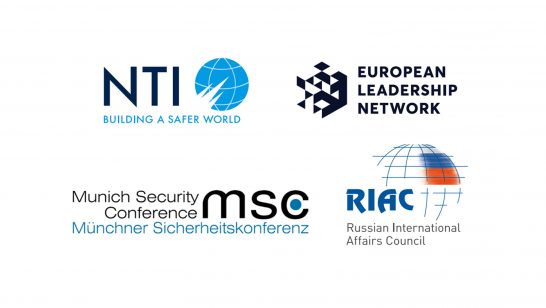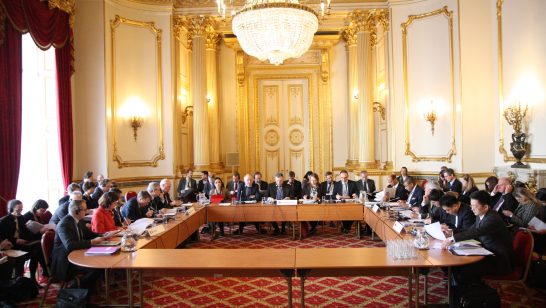The P5 Process brings together the five nuclear weapon states (NWS)—China, France, Russia, the United Kingdom, and the United States—recognised by the Treaty on the Non-Proliferation of Nuclear Weapons (NPT) in a dedicated forum to discuss their unique responsibilities under the Treaty. Originally conceived to demonstrate the NWS commitment to their NPT obligations and facilitate confidence-building and cooperation on disarmament issues, the P5 Process has had mixed success since it was established in 2009.
In October and November 2019, the European Leadership Network (ELN) and King’s College London (KCL) hosted two workshops with experts and government officials from each of the P5 countries to test proposals for the P5 Process. The objective was to explore further opportunities for P5 cooperation ahead of the London conference in February 2020 and NPT Review Conference (RevCon) in May 2020.
As a result of these workshops, the ELN and KCL captured many of the recommendations deliberated in a brief policy memo linked below, around the topics of: doctrine and transparency, strategic risk reduction, a testing moratoria, expectations for the 2020 Review Conference, and the future of the P5 process. It is important to note that these recommendations do not represent the views of any government or individual participants, but rather are based on the independent analysis of the project leads.
Recommendations include:
- To facilitate constructive engagement among the P5 and with Non-Nuclear Weapon States, the P5 should provide responses to specific questions on the nuclear doctrines and produce a joint P5 doctrines paper with the collated responses.
- The P5 should respond to the widespread interest and expectation of reaffirming the Reagan-Gorbachev statement that “a nuclear war cannot be won and must never be fought.” The optics of not restating will reflect badly on the P5. In the absence of P5 agreement to reaffirm the Reagan-Gorbachev statement, or another common formulation, individual P5 members would be free to adopt their own position – reaffirm Reagan-Gorbachev, state a new formulation, or ignore the issue. Alternatively, a separate Trump- Putin statement would be significant for the RevCon.
- The P5 should issue a joint statement addressing their unilateral nuclear testing moratoria and the work of the CTBTO.
- The P5 should establish a working group on strategic risk reduction and crisis stability for the next NPT Review cycle, and announce this decision at the 2020 RevCon.
- At the 2020 RevCon, the P5 should: respond to the Treaty on the Prohibition of Nuclear Weapons (TPNW); prepare for achieving a consensus RevCon final document; prepare a joint statement and a RevCon side-meeting.
- The P5 should make a clear commitment to continue the P5 Process in the next Review Cycle, and agree to consult on a range of topics including: the impact of emerging technologies on nuclear doctrines and strategic risk reduction; the future of arms control, including “rules of the road,” risk reduction and confidence-building measures, and communications channels as well as more formal and legally binding agreements.



